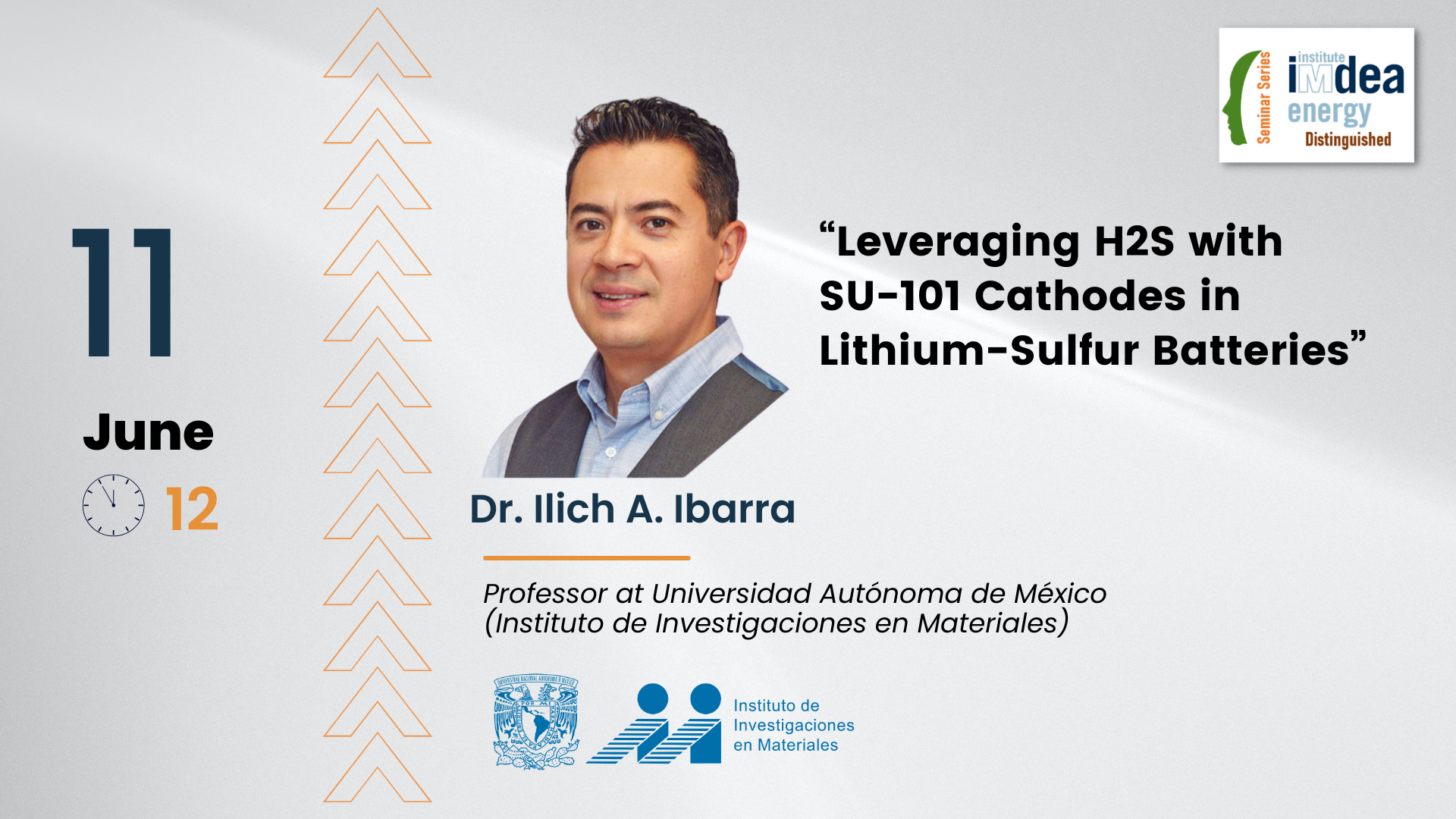Distinguished seminar: «Leveraging H2S with SU-101 Cathodes in Lithium-Sulfur Batteries»

Short Bio
Dr. Ilich A. Ibarra was born in Mexico City, Mexico in 1981. He completed a BSc in chemistry at Universidad Autónoma Metropolitana (UAM, Mexico) in 2005.
Later, in 2010 he obtained his PhD in Chemistry under the supervision of Prof. Martin Schröder at The University of Nottingham (UK) working on the synthesis and hydrogen adsorption properties of porous Scandium metal-organic frameworks. He then took a postdoctoral position, 2010-2012, at The University of Texas at Austin (USA) where he worked under the supervision Prof. Simon Humphrey studying the synthesis and characterisation of phosphine coordination materials (PCMs).
Then in 2013 he was awarded as a Wenner-Gren researcher at Stockholm University (Sweden) under the supervision of Prof. Xiaodong Zou. In 2014, he moved to Universidad Autónoma de México (Instituto de Investigaciones en Materiales), working as an Assistant Professor. In 2017 he was promoted to Associate Professor. In 2019 he was awarded with the “Young Investigators Award in Exact Sciences”, UNAM, Mexico. In 2020 he was designated as Member of the Advisory Board of Chemical Communications (RSC) UK, awarded with the Young Investigators Award in Exact Sciences, Mexican Academy of Sciences, Mexico, designated as Member of the Advisory Board of Dalton Transactions (RSC) UK, and from 2020 to 2022 he was appointed as Vice Principal of the Materials Research Institute, UNAM. In 2023 he was appointed as Catedra “Dr. Douglas Hugh Everett” at Departamento de Química, UAM
Summary
The SU-101-Sat cathode demonstrated strong performance analogous to standard Li-S batteries reported in the literature, and maintained 99.87% coulombic efficiency across 1000 cycles. The stable response was credited to the controlled release of polysulfides generated from captured H2S. These findings contribute advancement of promising MOFs designed to spontaneously convert toxic gas emissions into valuable feedstocks, serving as potential candidates for electrochemical energy conversion and storage devices.
The event is finished.
Date
- Jun 11 2024
- Expired!
Time
- 12:00 - 14:00
Location
- Auditorio IMDEA Energía


